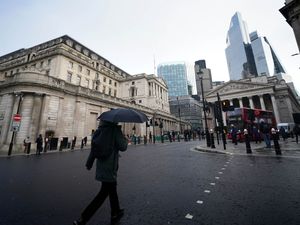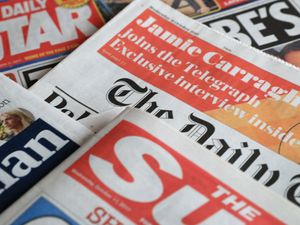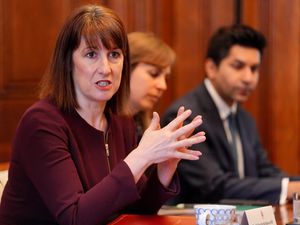Brexit deal like terms imposed after military defeat, says Boris Johnson
The Prime Minister was coming under increasing pressure to delay next week’s crunch vote on her Brexit plans.
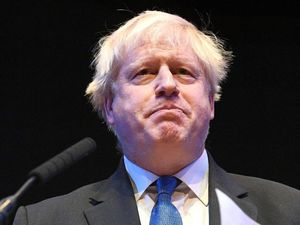
The Brexit deal obtained from Brussels by Theresa May is similar to the conditions that might be imposed on the defeated side in a war, Boris Johnson has said.
As Mrs May sent senior ministers out around the country to sell her deal, Mr Johnson repeated his call for MPs to throw it out in the crucial House of Commons vote next Tuesday.
The Prime Minister was coming under growing pressure to delay the December 11 vote to give herself time to ask for more concessions from the EU at a Brussels summit at the end of next week.
With three days of the five-day debate complete, Press Association analysis showed that of 163 MPs who have spoken, just 27 have indicated they will back Mrs May’s deal compared to 122 – including 29 Tories – who will vote against.
Senior Conservative MP Sir Graham Brady, chairman of the backbench 1922 Committee, said he would welcome deferring the vote to allow time to settle the question of how the UK removes itself from the so-called “backstop” arrangements for Northern Ireland.
However, a spokesman for Mrs May insisted the vote would be held on Tuesday.
Writing on Facebook, Mr Johnson said that the backstop “hands the EU the indefinite power to bully and blackmail this country to get whatever it wants in the future negotiations”, because it denies the UK the power to leave without agreement from Brussels.
Predicting that France will use this advantage to “plunder” UK fishing waters, Spain will “make another push for Gibraltar” and Germany will demand concessions on migration, the former foreign secretary said: “It is quite incredible that any government could agree to such terms.
“They resemble the kind of diktat that might be imposed on a nation that has suffered a military defeat.”
Health Secretary Matt Hancock confirmed that planes could be used to fly in drugs, and medicines could be given priority access through gridlocked ports in the event of a no-deal Brexit.
“If there is serious disruption at the border we will have prioritisation, and prioritisation will include medicines and medical devices,” he told BBC Radio 4’s Today programme.
The Government was also “buying a large collection of refrigeration units so that those drugs that can be stockpiled, we will have a stockpile of”.
The Border Delivery Group, a Whitehall co-ordination group for Government departments that have an interest in border issues, was holding discussions with key stakeholders on Friday, a spokesman for Mrs May said.
The discussions centre on “the Government’s no deal planning assumptions for the border”, the spokesman said.
Meanwhile, Foreign Secretary Jeremy Hunt warned of “real social instability” if a second referendum resulted in a victory for Remain.
“For me as someone who voted Remain, my view is we will not have social stability in this country if we end with a solution that doesn’t mean that we have parliamentary control of immigration policy,” he told The Times Red Box.
If a fresh poll reversed the 52%-48% majority for Leave in 2016, Leave supporters “would be incredibly angry and I wouldn’t rule out real social instability in this country”, he said.
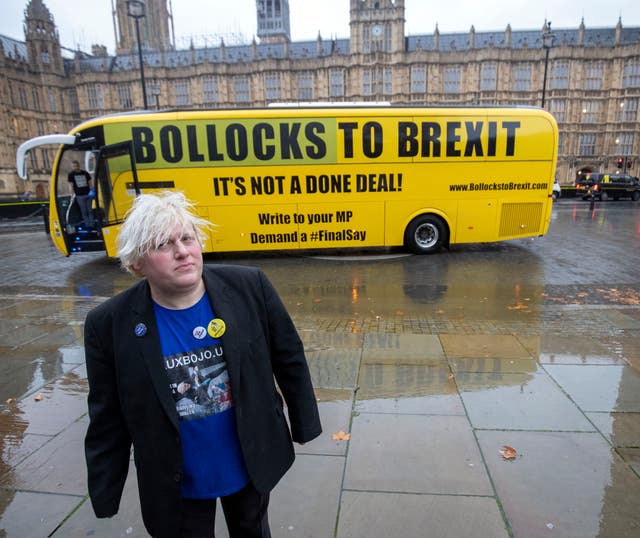
Labour leader Jeremy Corbyn said that “all options” – including a second referendum – must be on the table if Mrs May goes down to defeat next week.
Writing in The Guardian, Mr Corbyn made clear that his preferred result remains a general election which might allow Labour to try to secure a Brexit involving a customs union which gave the UK a say in future EU trade deals, as well as a new single market deal allowing Britain control over migration and state aid.
“In the past, a defeat of such seriousness as May now faces would have meant an automatic election,” said the Labour leader.
“But if under the current rules we cannot get an election, all options must be on the table. Those should include Labour’s alternative and, as our conference decided in September, the option of campaigning for a public vote to break the deadlock.”
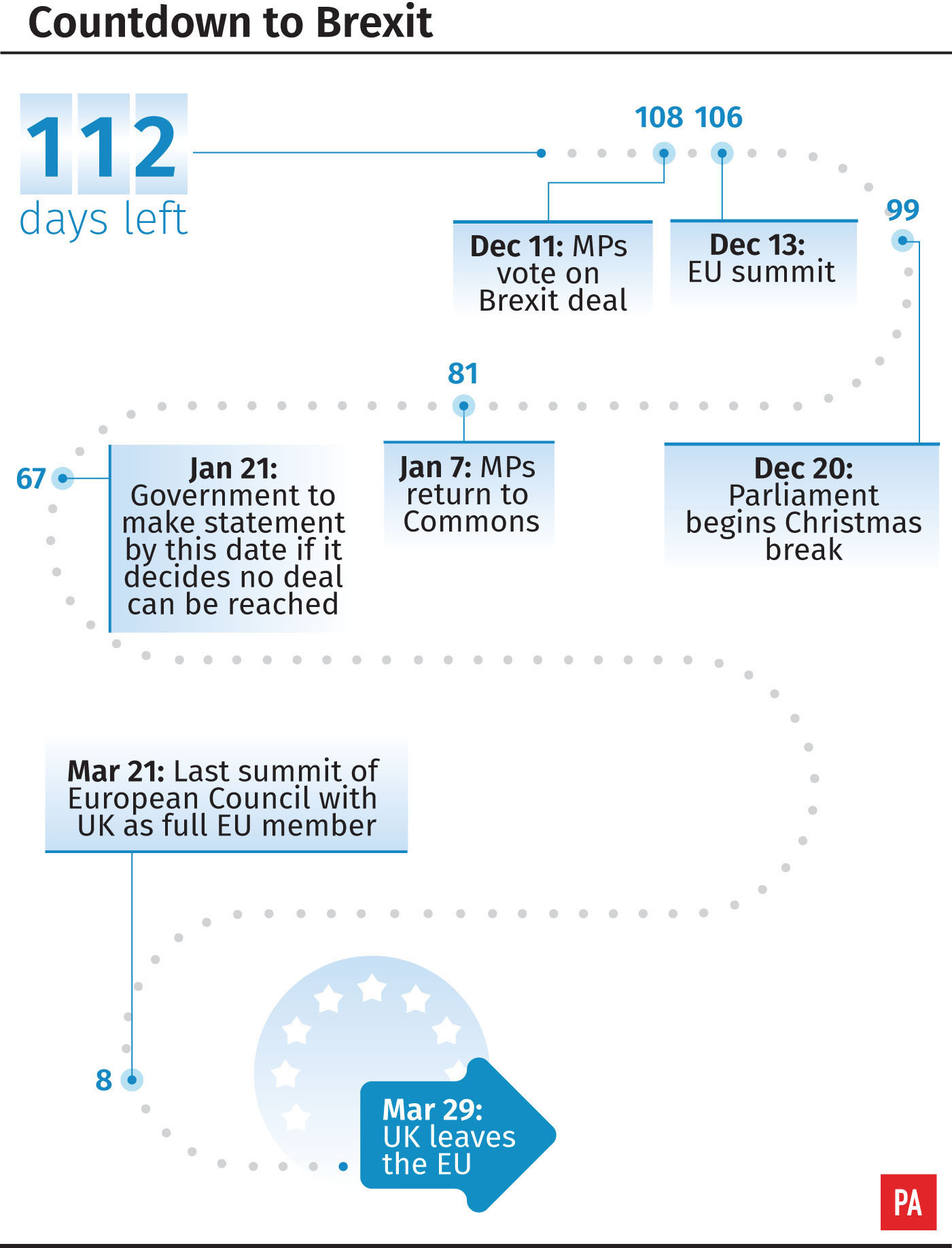
Conservative chairman Brandon Lewis said it was “the strongest signal yet that Labour are considering backing a second referendum, breaking his promise to respect the country’s decision to leave”.
Mr Lewis said: “All Jeremy Corbyn offers is more division and uncertainty. After nearly two years of long and complex negotiations, he would take us back to square one.”
Senior Cabinet ministers including Mr Hancock and Chancellor Philip Hammond were among those making a late push to garner support for Mrs May’s Withdrawal Agreement in a series of engagements around the UK.
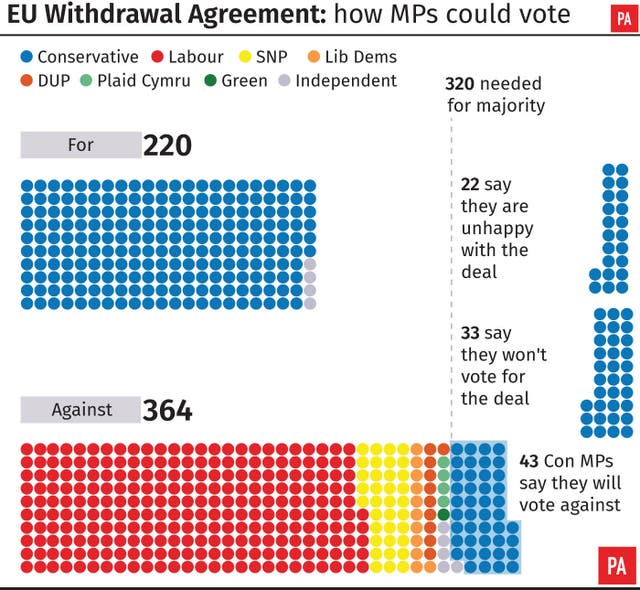
Visits were being made to schools, hospitals, workplaces and a butcher’s shop in East Anglia in a bid to build support among regional audiences, with many taking place outside the gaze of the national media.
A fresh amendment to the vote on the Withdrawal Agreement also appeared designed to shore up Mrs May’s position.
Tabled by Northern Ireland minister Sir Hugo Swire, Richard Graham and Bob Neill, the amendment would give Parliament the power to impose a one-year limit on the backstop.
The amendment would impose a duty on the Government “to have an agreed future relationship or alternative arrangements one year after the Northern Ireland backstop coming into force … so that the Northern Ireland backstop ceases to apply”.
But DUP leader Arlene Foster, whose party opposes Mrs May’s deal, warned it would not be enough, tweeting: “Domestic legislative tinkering won’t cut it.
“The legally binding international Withdrawal Treaty would remain fundamentally flawed as evidenced by the Attorney General’s legal advice.”
The backstop, intended to prevent the return of a hard border in Northern Ireland, is highly controversial as Brexiteer MPs claim it traps the UK into obeying rules set by Brussels without a say over them.
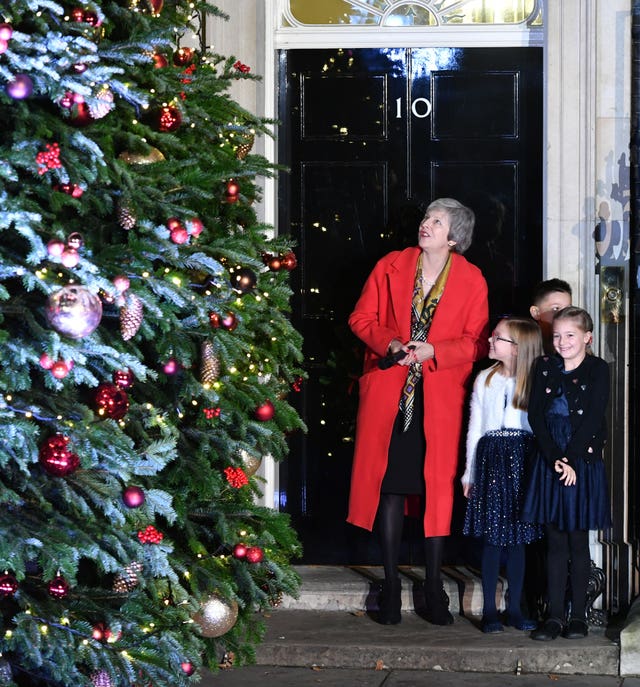
Legal advice from Attorney General Geoffrey Cox has shown that the backstop arrangements in the Withdrawal Agreement would potentially last “indefinitely”.
The Prime Minister has already indicated that Parliament would have a say, if a trade deal is not secured by the summer of 2020, on whether to trigger the backstop or to extend the period of transition out of the EU for up to two more years.
But the European Commission has firmly set its face against any time limit on the backstop.
Leaked Government papers obtained by The Times suggested that Ireland could suffer more from a no-deal Brexit than the UK, with a projected 7% drop in GDP compared to 5% for Britain.



